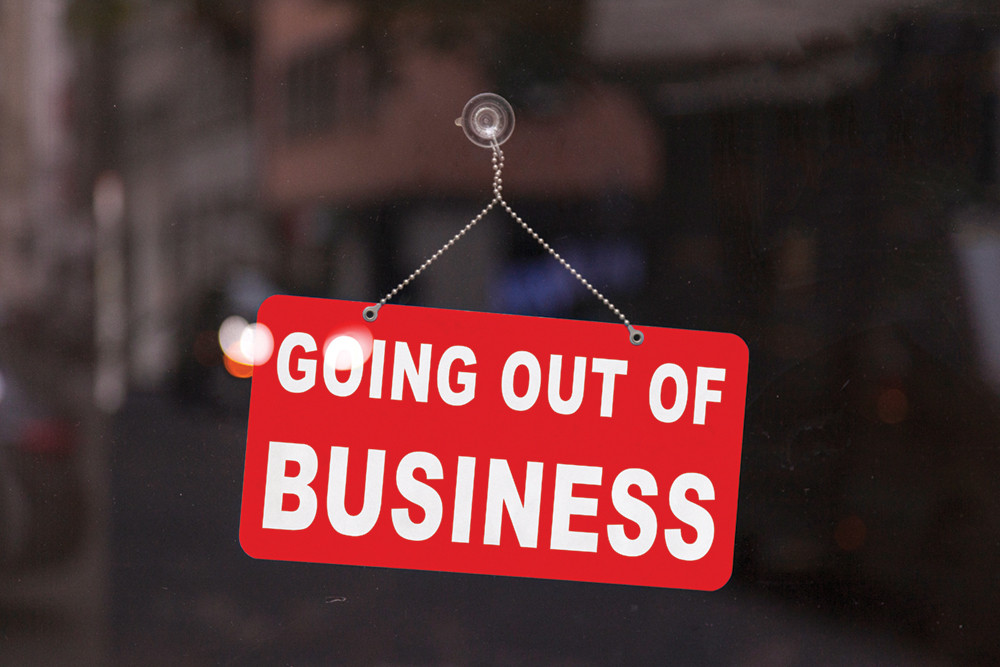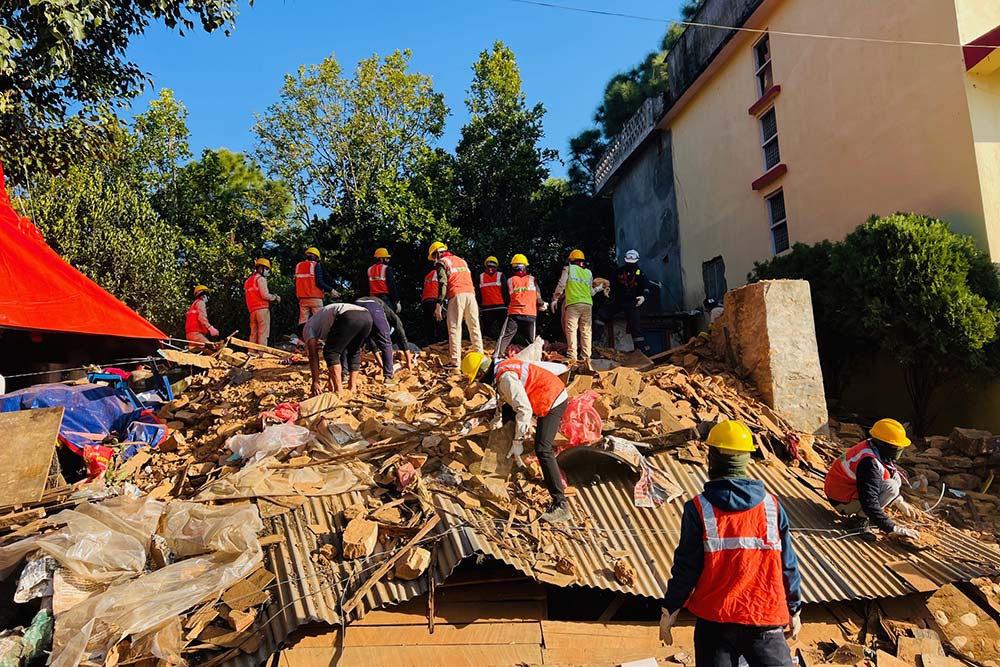
Small and Medium Enterprises play a vital role in the economic development of a country; and in the case of a developing nation like Nepal, their contribution becomes even greater. SMEs in Nepal create self employment opportunities, generate jobs, the opportunity to mobilise and utilise local resources, as well as improve the income status of people.
Without proper planning and support in place, SMEs in the country may never be the same again. In due course, life will go back to a new normal but the economic toll of the pandemic could devastate businesses and the landscape of small and medium enterprises in the country with an inability to revive.
Women led SMEs are bearing the full brunt of the pandemic and though hopeful, the entrepreneurs are trying their best to navigate an uncertain future.
SME background
The definition of a small and medium enterprise may slight differ from country to country. According to the Industrial Enterprise Act 2016, businesses with fixed assets of up to Rs. 100 million are small-scale enterprises whereas businesses with fixed assets up to Rs. 250 million are medium scale enterprises. According to Nepal Economic Forum, SMEs contribute significantly to a nation’s economy and GDP growth. In emerging countries, SMEs contribute around 40% of the total GDP and 60% of the total employment. However, in Nepal’s case SMEs contribute to around 22% of the GDP and generate around 17,00,000 employment. According to the study published by Nepal Rastra Bank, by the end of the fiscal year 2017- 2018, there were 275,433 SMEs registered in Nepal. Statistics provided by UNCDF state that women-led SMEs account for around 14,000 businesses and is estimated to employee about 200,000 workers which would be accounting to 2% of the GDP. Many more women-led small and medium enterprises operate in the informal sector. The statistic outlines that SMEs employ a majority of the labour force in the country and are significant contributors to the economy. However, as reported in a national daily, they are often overlooked and fail to garner as much attention as large businesses do in the policy-making discourse surrounding the economy.Women-led SMEs Pre-Lockdown
The ratio of women-led SMEs lags far behind the number of men-led SMEs however over the past decades entrepreneurship for women is viewed as a journey out of poverty and towards equality. SME entrepreneurship has empowered women and create an environment where more women entrepreneurs and women-led businesses can flourish. Most SMEs have been forced to stop their business activities due to the current lockdown, and are struggling to stay afloat. Larger enterprises may have the resources to survive and revive after the lockdown but SMEs whether men or women led have a very difficult road ahead that may not always have a positive ending. Zoya Gurung, Director of Ginger Enterprise recalls, “Our business was in a stable condition before the lockdown. With four outlets in operation for several years, we were looking to expand our outlets into bigger locations to provide wider varieties of choices for our customers”. Hajuri Bista, Founder of Hajuri Khadya Udhyog had to completely stop operations because pickles and condiments do not come under the essential food items like rice or vegetables. “The situation is quite scary and since we are in the food production industry we have to take extra preventive measures.” Similarly, Shirsti Rana, Founder, Rays and Nuts, expresses that due to the outbreak and the lockdown, she has had to completely halt her production and has stopped working for the past four months. “The situation before the lockdown was positive. There were many plans and products lined up and we were working full-fledged but due to the outbreak and the lockdown I have completely stopped operations”, explains Rana.Not So Novel Challenges
Prior to the lockdown, women entrepreneurs already had several challenges. Significant progress had been made in the past decade, but there are still many issues that need to be improved such as access to finance, gender-responsive policies, family barriers and deconstructing stereotypes about women entrepreneurs.As negative as the pandemic has been for every business in the country, the problem with women-led SMEs didn’t start when the pandemic began nor when the lockdown came into effect. Women businesses in the country have been facing many problems for decades.As negative as the pandemic has been for every business in the country, the problem with women-led SMEs didn’t start when the pandemic began nor when the lockdown came into effect. Women businesses in the country have been facing many problems for decades. For example, women entrepreneurs or women led business have always suffered from inadequate financial resources or working capital that had hindered their establishment and growth. Even when women-led SMEs manage to get access to finance the relatively short time for repayments and high interest rates only compound their challenges and damper risk appetite.
Lockdown Blues
With total shut down of business and seemingly no income coming in, various unforeseeable challenges like rent, staff salaries, loan repayments and bearing the operational cost have become a major financial hurdle. Gurung explains, “Like any other businesses, our company has also been affected drastically by the lockdown and the current Covid crisis. Firstly, paying rent for all the outlets has been grueling since they were all closed for three months. On top of that, paying salaries to the staff with no business has been really tough”. In addition, the lockdown has severely impacted whatever progress individual business or the larger SME sector had made. Rana stresses, “Whatever milestone we were planning to reach and achieve has all been postponed due to the pandemic. We are having to constantly plan and restructure our plans according to what unfolds every other day. We are living in an uncertain time, and sometimes the fear of what is to come is quite daunting”. Mental health has also come under the scope. Bista expresses, “The lockdown has been particularly very tough for our employees. If the situation is bad for us, the lockdown has made the situation even worse for our workers”. She explains, “My workers who have been with the company for more than 20 years were facing lots of problems during the lockdown as they were confined to a small space with their families and with no incoming coming in, their mental status had started to degrade. I find that they are depressed and anxious. When we resumed work, the staff seemed happy,” she concludes. Currently, Bista has been housing 20 of her employees in her factory and has been paying them through her own pocket. Another major challenge has been procurement. With the nation under lockdown, entrepreneurs like Bista and Rana are unable to procure raw materials. The key issue was either the ingredients lacked quality or the ingredients were getting more expensive. As the effects of Covid 19 are increasingly felt, most of the small and medium sized ventures have faced supply chain disruption, with many having to close down business.Majority of Nepal’s SMEs heavily rely on raw materials from China or India.
Another challenge is the government’s indecisiveness towards imposing and lifting of the lockdown. “If the government would listen to experts and make informed decisions, it would have been better for small business owner like us to mitigate our expenses and plan better as well,” explains Bista.How can SMEs survive?
SMEs need immediate support from the government. Economist claims that the best way to prepare for normality after the pandemic crisis would be to support SMEs. Although only an estimated 16% of SMEs in the country are financed through bank loans, it would be beneficial for these companies if banks ease loan application and repayment processes. Various measures have been suggested by the economists and stakeholders. For example, the government can cover half of the interest to be paid by the SMEs on condition that they don’t lay off workers. This will not only help revive SMEs but save the jobs of thousands of employees as well. The primary focus for foreign governments has been to support SMEs during and after the Covid 19 crisis. It would not be only wise but beneficial for any country’s long-term economy.Waiting Game
While most SMEs are on survival mode, the lockdown could potentially be an opportunity for women-led SMEs to analyse their business model and come up with a concrete plan to move forward in the new normal. Bista explains, “We are taking this time as an opportunity to study our products more and experiment with the product line. Since I have been in this industry for more than 25 years, I am still positive and I do believe post-Covid, there will always be a market for pickles. But to move this industry forward would be the job for the younger generations with new ideas and technology”. Over the past month as lockdown restrictions were eased, evidence proved that the local market was ready and willing to support women-led SMEs by purchasing or using their services. Rana expresses, “Surprisingly during the lockdown, the orders kept coming in. This gave me the motivation to continue my work and reassured me that there was a future post lockdown”. Gurung stresses, “Since the current situation is very much out of our control, we’re trying our best to sustain our company and our staff and cope with the circumstances as they come. We have decided to close down one of our outlets to cope with this crisis. Our priority is safety and security of our staff and customers”. Bista asserts, “Right now our main priority is not profit, but to survive, reduce expenses and retain our workforce”. Gurung expands, “Our future plan is to reinstate stability into the company and try to come up with better contingency plans to manage future crises”.
Published Date: September 14, 2020, 12:00 am
Post Comment
E-Magazine

Click Here To Read Full Issue
RELATED Feature




